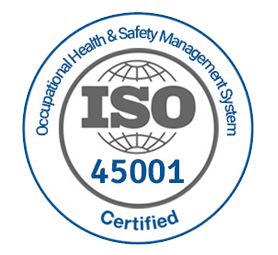ISO 30401 (Knowledge Management Certification)
This ISO standard sets requirements and provides guidelines for establishing, implementing, maintaining, reviewing and improving an effective management system for knowledge management in organizations. All the requirements of this document are applicable to any organization, regardless of its type or size, or the products and services it provides.
The purpose of this ISO management system standard for knowledge management is to support organizations to develop a management system that effectively promotes and enables value-creation through knowledge.
Knowledge management is a discipline focused on ways that organizations create and use knowledge. Knowledge management has no single accepted definition and no global standards predate this management system standard. There are many well-known barriers to successful knowledge management which still need to be overcome, many confusions with other disciplines such as information management, and many common misconceptions about how to do knowledge management, for example the view that simply buying a technology system will be enough for knowledge management to add value.
Each organization will craft a knowledge management approach, with respect to its own business and operational environment, reflecting their specific needs and desired outcomes
The intent of this document is to set sound knowledge management principles and requirements
- Appropriate, correct care
- Availability
- Continuity of the care
- Effectiveness
- Efficiency
- Consistency
- Evidence-based, knowledge-based care
- Patient care, including physical and psychological integrity of the care
- Integration of the patient
- Patient safety
- Timeliness and accessibility
- a) as guidance for organizations that aim to be competent in optimizing the value of organizational knowledge;
- b) as a basis for auditing, certifying, evaluating and recognizing such competent organizations by internal and external recognized auditing bodies.
The importance of knowledge management
a) The aim of work is to produce valuable results. Valuable results are derived from applied knowledge. Organizational knowledge is becoming a key differentiator for effectiveness, increased collaboration and competition.
b) Knowledge work is increasingly important in many societies and organizations. Many economies aspire to become knowledge economies, where knowledge is the main source of wealth. In this context, knowledge becomes a core asset for organizations. Knowledge is especially important in many areas: it allows effective decisions to be made, supports the efficiency of processes and contributes to their enhancement, creates resilience and adaptability, creates competitive advantage and may even become a product in its own right.

d) Organizations can no longer rely on the spontaneous diffusion of knowledge to keep up with the pace of change. Instead knowledge must be deliberately created, consolidated, applied, and reused faster than the rate of change.
e) Geographically dispersed and decentralized organizations, conducting the same processes and delivering the same services in multiple locations, can gain tremendous advantage through sharing practices, expertise and learning across organizational boundaries.
f) Workforce attrition and turnover in today’s society has implications for knowledge management. In many organizations, critical knowledge is often siloed and/or retained by experts, at the risk of being lost when the organization changes or these experts leave.
g) Effective knowledge management supports collaboration between different organisations to achieve shared objectives.
Knowledge is an intangible organizational asset that needs to be managed like any other asset. It needs to be developed, consolidated, retained, shared, adapted and applied so that workers can make effective decisions and take aligned actions, solving problems based on the experience of the past and new insights into the future. Knowledge management is a holistic approach to improving learning and effectiveness through optimization of the use of knowledge, in order to create value for the organization. Knowledge management supports existing process and development strategies. As such, it needs to be integrated with other organizational functions.
Guiding principles
a) Nature of knowledge: knowledge is intangible and complex; it is created by people.
b) Value: knowledge is a key source of value for organizations to meet their objectives. The determinable value of knowledge is in its impact on organizational purpose, vision, objectives, policies, processes and performance. Knowledge management is a means of unlocking the potential value of knowledge.
c) Focus: knowledge management serves the organizational objectives, strategies and needs.
d) Adaptive: there is no one knowledge management solution that fits all organizations within all contexts. Organizations may develop their own approach to the scope of knowledge and knowledge management and how to implement these efforts, based on the needs and context.
e) Shared understanding: people create their own knowledge by their own understanding of the input they receive. For shared understanding, knowledge management should include interactions between people, using content, processes and technologies where appropriate.
f) Environment: knowledge is not managed directly; knowledge management focuses on managing the working environment, thus nurturing the knowledge lifecycle.
g) Culture: culture is critical to the effectiveness of knowledge management.
h) Iterative: knowledge management should be phased, incorporating learning and feedback cycles.
























